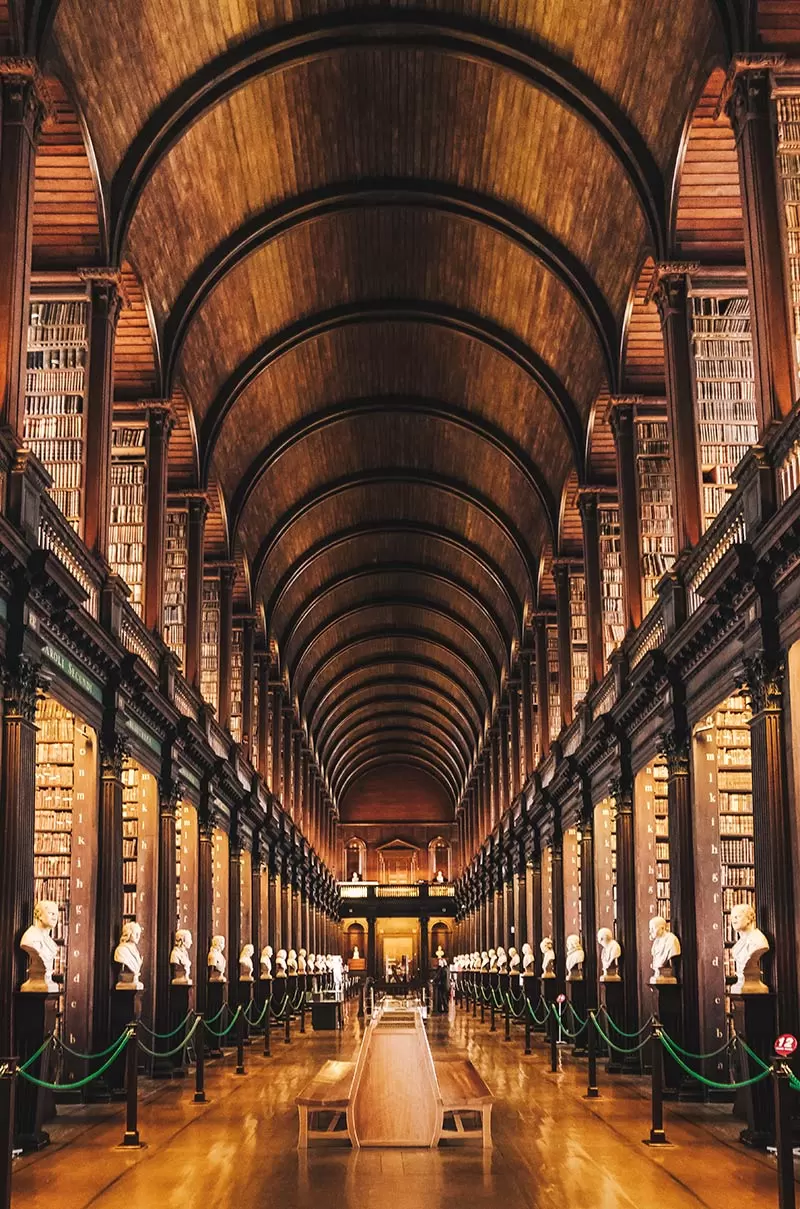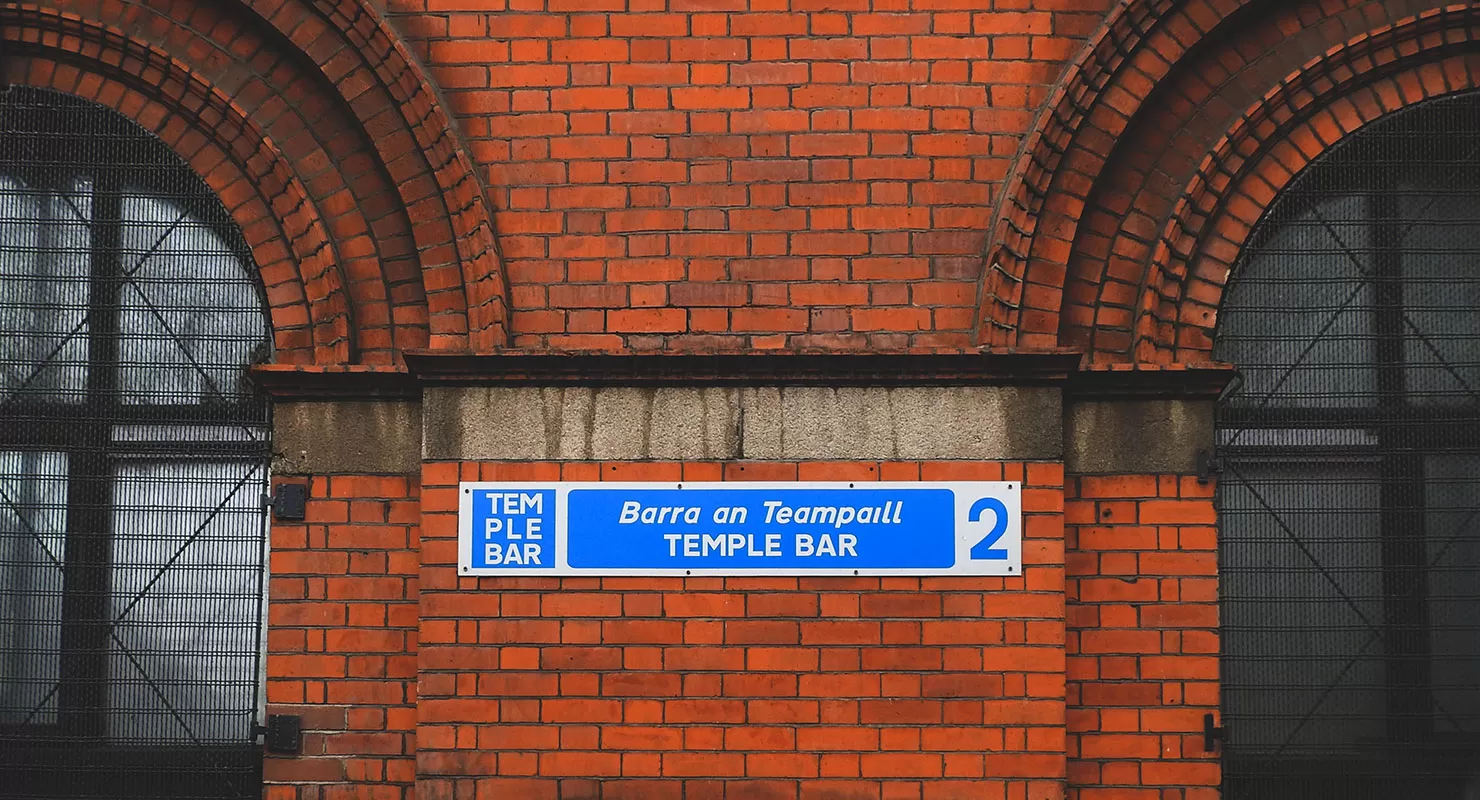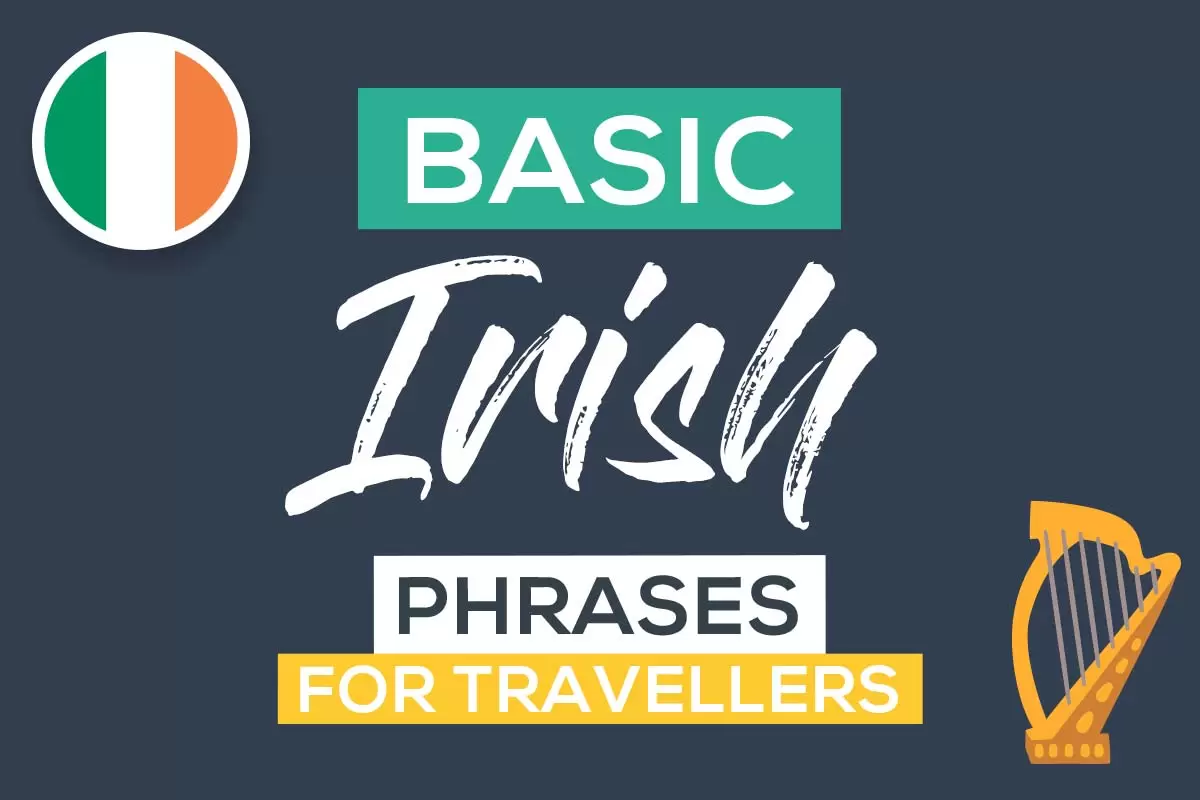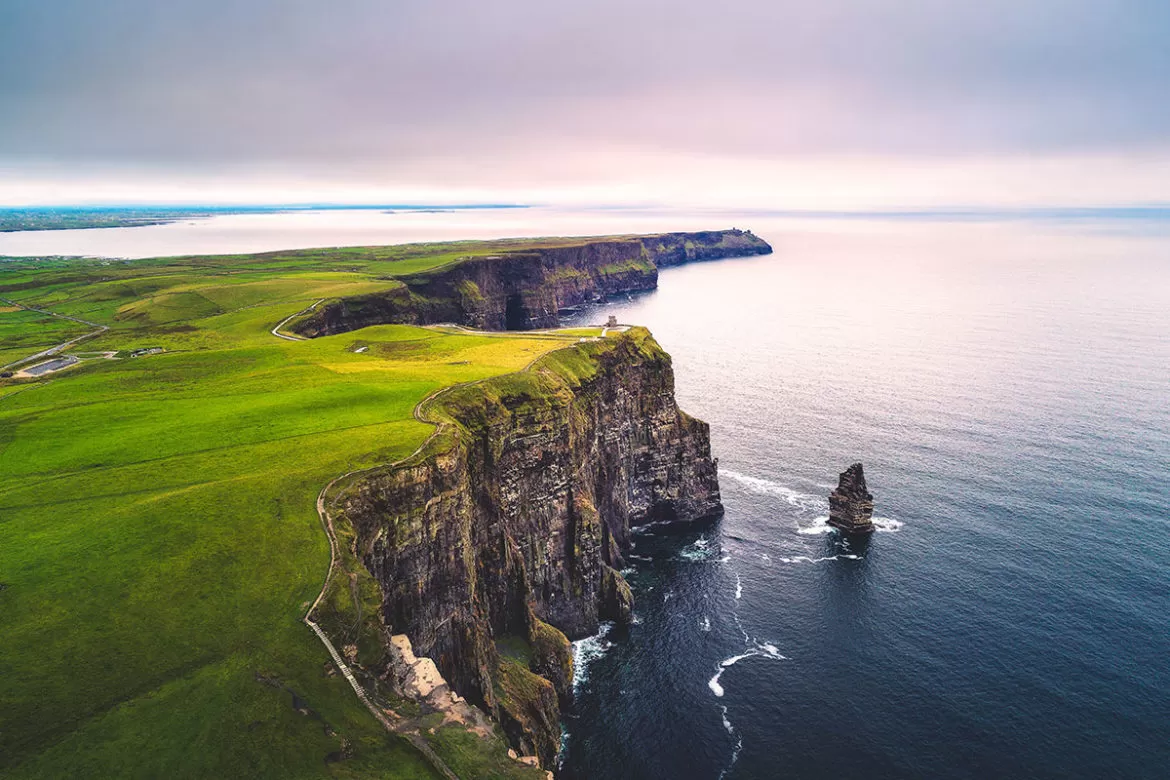If you’re new to learning Irish or are travelling to Irish speaking (Gaeltacht) parts of Ireland, this useful Irish travel phrase guide is the perfect resource.
Just like all my other phrase guides, this Irish travel phrase guide gives you a well-rounded set of practical phrases and vocabulary which will help you have meaningful conversations and interactions with the locals. For ease of use, I’ve included the transliteration for each phrase which means you can read as if you were reading English, but you’ll be magically speaking Irish!
Want to have fun whilst learning Irish? Struggling to find decent Irish language resources? I recommend getting uTalk. Available as a desktop site and app, uTalk is awesome for learning key words and phrases in Irish, especially if you want to use it for travel purposes. It’s great for beginners getting started in a language and invaluable for intermediates looking to fill in gaps in their vocabulary and pronunciation.
What I love most about uTalk is that you can jump around their extensive library of topics and choose what you want to learn, when you want, and at your own pace. Because I believe in uTalk so much, I reached out to them and we’ve teamed up to offer you an exclusive 30% OFF reader discount across all of uTalk’s 140 languages! This offer isn’t available anywhere else! Click here to claim your exclusive 30% discount.
Let’s take a closer look at the Irish language. Here’s what we’ll cover:
Table of Contents
- A Quick History of Irish (Gaeilge)
- What is the Irish language called?
- Where is Irish spoken?
- How many people speak Irish?
- Irish Alphabet
- Irish Grammar
- Useful Irish Phrases for Travellers
- Useful Irish Phrases for Travellers [Infographic]
A Quick History of Irish (Gaeilge)
 Irish Gaelic, or Gaeilge, is one of the oldest surviving languages of Europe with evidence of written sources on stone dating back to the 6th and 7th centuries. An earlier and simplified form of the Irish alphabet known as Ogham has also been found which dates back to around the 5th and 6th centuries.
Irish Gaelic, or Gaeilge, is one of the oldest surviving languages of Europe with evidence of written sources on stone dating back to the 6th and 7th centuries. An earlier and simplified form of the Irish alphabet known as Ogham has also been found which dates back to around the 5th and 6th centuries.
Irish was spoken well before these written records on stone appeared and it is believed that the language reached Ireland around 500 BC.
What is the Irish language called?
When speaking English, the correct name for the language is “Irish.” When speaking Irish, the language is referred to as “Gaeilge.” You may also hear people say Irish Gaelic which is said in order to make it clear they aren’t talking about Gaelic, which means Scottish Gaelic and is spoken in Scotland along with Scots. Both, however, are related but still maintain considerable differences.
How many people speak Irish?
According to this 2016 census, there are 73,803 people who speak the Irish language on a daily basis in the Republic of Ireland. A further 111,473 speak it weekly; 586,535 speak less frequently, and the rest rarely speak it. Which gives us a total of 1.76 million speakers of the Irish language.
Where is Irish spoken?
 Irish (Gaeilge) is spoken in mainly Ireland (Éire), predominantly in areas known as Gaeltacht (pronounced Gale-tokht) where Irish is the working language of the area. However, every city and large town will have its own Irish language schools and Irish-speaking community.
Irish (Gaeilge) is spoken in mainly Ireland (Éire), predominantly in areas known as Gaeltacht (pronounced Gale-tokht) where Irish is the working language of the area. However, every city and large town will have its own Irish language schools and Irish-speaking community.
Gaeltacht areas include northwest Donegal and Tory Island, parts of west Mayo and the islands of Inishkea and Achill, Connemara in south Galway and the Aran Island; the Dingle Peninsula in County Kerry; Muskerry and the island of Cape Clear in County Cork; An Rinn (the Ring) in Waterford and Ráth Cairn and Baile Ghib (Gibbstown) in Meath.
Outside of Ireland, Irish speakers can also be found in the UK (Ríocht Aontaithe), the USA (Stáit Aontaithe Mheiriceá), Canada (Ceanada) and Australia (an Astráil).
Irish Alphabet
Here are the letters of the Irish alphabet and their pronunciation.
Irish Grammar
Unlike English, has a word order of Subject Verb Object, the Irish word order is quick unique in that it is, Verb Subject Object. Only 9 per cent of the languages in the world use this word order. Let’s take the phrase, “I drank a Guinness”, in Irish it would be “Drank I a Guinness.”
How to Say ‘Yes’ and ‘No’ in Irish (It’s not how you think!)
A special characteristic of Irish is how there is no one word for saying “Yes” or “No”. Instead, the verb in the question is repeated in either it’s affirmative (yes) or negative (no) form. This system is found in all modern Celtic languages, except Breton (which is a special case).
So for example, the answer to the question “Can you speak Irish?” would be either “I can” or “I can’t” instead of “yes” or “no”.
How to count in Irish
Using numbers in Irish can be a complicated business. Irish has three number systems, one for counting numbers or referring to dates and times, another one used for people, and one for things. For example, the number two is “a dó” (a daw), but two coats is “dhá chóta” (kghaw khota), and two boys is “beirt bhuachaillí” (berch vookallee).
To keep things simple, this guide includes the numbers used in counting.
Useful Irish Phrases and Words for Travellers

Want the infographic to take with you? Scroll to the bottom of the page and save it.
P.S. If you’re reading this on your phone and can’t see the pronunciation column, turn it to landscape mode. For some reason, tables aren’t mobile friendly. Sorry!
| English | Irish Translation | Pronunciation |
|---|---|---|
Greetings | ||
| Hello (greet someone) | Dia dhuit | Dee-ah qwitch |
| Hello (in response to a greeting) | Dia ‘s Muire dhuit | Dee-ah smurra qwitch |
| Good morning | Dee-ah dhuit ar maidin | Dee-ah gitch er modjin |
| Good night | Oíche mhaith agat | Ee-hah wah agut |
| Goodbye (to someone leaving) | Slá leat | Slawn lyat |
| Goodbye (when you leave) | Slán agat | Slawn agut |
| How are you? | Conas atá tú (Connacht) / Cén chaoi a bhfuil tú (Munster) / Cad é mar atá tú? (Ulster) | Kunass ataw too / Kayne kwee ah will too / Guh jay mar ata too |
| I’m very well, thank you | Tá mé go maith, go raibh maith agat | Taw may guh mah, guh row mah agut |
| Good, thank you | Go maith, go raibh maith agat | Guh maith, guh row mah agut |
| What is your name? | Cad is ainm duit? | Kad iss annyim ditch? |
| My name is… | … is ainm dom | … is annyim dum |
| It’s nice to meet you too | Tá sé deas bualadh leat | Taw shay sjay jass boola lyat |
Essentials | ||
| Please | Le do thoil | Leh duh hull |
| Thank you | Go raibh maith agat | Guh row mah agut |
| You’re welcome | Tá fáilte romhat | Taw fawl-cha rowat |
| OK | Ceart go leor | K’yart guh lore |
| Excuse me | Go mo leithscéal | Guh muh leshkayle |
| I’m very sorry | Tá mé buartha | Taw may boor-ha |
| I don’t understand | Ní thuigim | Nee higgim |
| I don’t speak Irish | Níl Gaeilge agam | Nyeel Gayle-ga agum |
| Please repeat that slowly | Abair arís é go mall, le do thoil | Obber areesh ay guh mawl, leh duh hull |
Questions | ||
| Where? | Cá | Kaw |
| How? | Conas | Kunass |
| Where is/are…? | Cá bhfuil | Kaw will |
| How much? | Cá mhéad | Ka vayd |
| Who? | Cé | Kay |
| When? | Cén uair | Kayne oo-ir |
| Why? | Cén fáth | Kayne faw |
| What? | Cad é / céard | kad ay / kerd |
| Which? | Cé acu | Kay acoo |
| How much is this? | Cá mhéad atá air seo? | Kaw vayd ataw er shuh |
| How much does that cost? | Cá mhéad atá air sin? | Kaw vayd ataw er shin |
| Where is the toilet? | Cá bhfuil an leithreas | Kaw will un lyeh-riss |
| Can I have… | An bhféadfainn | Un vayd-hinn |
| I would like… | Ba mhaith liom | Buh wah lyum |
Eating Out | ||
| The menu, please | An biachlár, le do thoil | Un bee-akhlore leh duh hull |
| Two beers, please | Dhá bheoir, le do thoil | Gaw vyore leh duh hull |
| A bottle of house red wine, please | Buidéal fhíon dearg an tí le do thoil | Bujayle een jar-ig un chee leh duh hull |
| Some plain water, please | Gnáthuisce, le do thoil | Graw-ishka leh duh hull |
| I’m allergic to… | Tá ailléirge orm le | Taw awlergeh orum leh |
| I’m a vegetarian | Is feoilséantóir mé | Iss f’yowle-shine-tore may |
| Can we have the bill, please? | An bhféadfaimis an bille afháil, le do thoil? | An vayd-fameesh un billya a awl leh duh hull |
| What do you recommend? | Cad a mholfá dom? | Kodd a vulfaw doo |
| The meal was excellent | Bhí an béile ar fheabhas | Vee un bayla air owwass |
Getting Around | ||
| Left | Er clé | Er klay |
| Right | Er dheis | Er yesh |
| Keep going straight ahead | Gabh díreach ar aghaidh | Do djeeragh air ay |
| Turn left | Cas ar clé | Koss er klay |
| Turn right | Cas er dheis | Koss er yesh |
| Entrance | bealach isteach / slí isteach | bal-akh iss-chah / shlee iss-chah |
| Exit | bealach / slí amach | Bal-akh / shlee amah |
| I’m lost | Tá mé ar strae | Taw may er stray |
Numbers | ||
| 0 | náid | nawje |
| 1 | a haon | a hayne |
| 2 | a dó | a daw |
| 3 | a trí | a tchree |
| 4 | a ceathair | a kyehir |
| 5 | a cúig | a koo-ig |
| 6 | a sé | a shay |
| 7 | a seacht | a seacht |
| 8 | a hocht | a hocht |
| 9 | a naoi | a nee |
| 10 | a deich | a deich |
| 11 | a haon déag | a hayn yayg |
| 12 | a dó déag | a daw yayg |
| 13 | a trí dhéag | a tchree djayg |
| 14 | a ceathair | a kyehir djayg |
| 15 | a cúig-déag | a koo-ig djayg |
| 16 | a sé-déag | a shay djayg |
| 17 | a seacht-déag | a seacht djayg |
| 18 | a hocht-déag | a hocht djayg |
| 19 | a naoi déag | a nee djayg |
| 20 | fiche | fihha |
| 30 | tríocha | tchree-okha |
| 40 | daichead | die-hayd |
| 50 | caoga | kayga |
| 60 | seasca | shasska |
| 70 | seachtó | shakhtoe |
| 80 | ochtó | okhtoe |
| 90 | nócha | no-ha |
| 100 | céad | kyayd |
| 1000 | míle | meela |
Time | ||
| Today | inniu | inn-yoo |
| Tomorrow | amárach | amar-akh |
| Yesterday | inné | Inn-yay |
| What time is it? | Cén t-am é? | Kayne tam ay |
| It’s … | Tá sé… | Taw shay |
Days | ||
| Monday | An Laun / Dé Luain | An loon / djay Looin |
| Tuesday | An Mháirt / Dé Máirt | An loon / djay Looin |
| Wednesday | An Chéadaoin / Dé Céadaoin | An warch / djay Vorch |
| Thursday | Déardaoin | Djare-deen |
| Friday | An Anoine / Dé hAoine | An eena / djay heena |
| Saturday | An Satharn / Dé Sathairn | An sahharn / djay Sahharn |
| Sunday | An Domhnach / Dé Domhnaigh | An down-akh / djay down-ee |
Emergencies | ||
| Help! | ||
| I need a doctor | Tá orm dochtúir a fheiceáil | Taw urm dokh-ture ah eckawl |
| I’m ill | Tá mé tinn | Tay may teen |
| Call the police! | Cuir fios ar na Gardaí | Kur fiss er un Gordee |
| There is a fire | Tá tine ann | Taw tinna unn |
Useful Irish Phrases and Words for Travellers [Infographic]
Like it? Pin it for later!

Sources / Irish Phrasebook / Omniglot
Going to Ireland?
Want to know more about learning languages? Start here!
- How to Learn Your First Foreign Language in 8 Simple Steps: A Beginner’s Guide
- Language learning tips: 11 Polyglots Reveal The Secrets of Their Success
- Top Language Learning Resources You Should Use
- 11 Life-Changing Reasons Why You Should Learn a Language
- 42 beautiful Inspirational Quotes for Language Learners
- Top 10 Best Ways to Learn a Language Better and Faster
Over to you!
Which of these Irish phrases did you find the most useful? Let me know using the comments section below or join me on social media to start a conversation.
Thanks for reading and I hope you enjoyed this post.
Like what you see? Subscribe using the form below to have all of my posts delivered directly to your email.


2 comments
Very much excited to visit after looking at these scenarios!!
Yay! I’m so happy to hear that :)